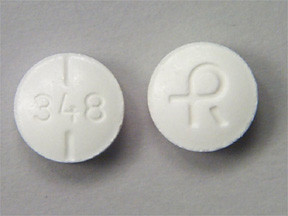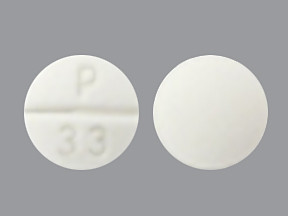PROPYLTHIOURACIL - ORAL
PHONETIC PRONUNCIATION: (PROE-pil-THYE-oh-URE-a-sil)
COMMON BRAND NAME(S): Propacil
GENERIC NAME(S): propylthiouracil
Uses
USES: Propylthiouracil is used to treat overactive thyroid (hyperthyroidism). It works by stopping the thyroid gland from making too much thyroid hormone. This medication is not recommended for use in children.
How to use PROPYLTHIOURACIL - ORAL
HOW TO USE: Read the Medication Guide provided by your pharmacist before you start taking propylthiouracil and each time you get a refill. If you have any questions, ask your doctor or pharmacist. Take this medication by mouth with or without food as directed by your doctor, usually 3 times a day (every 8 hours). Dosage is based on your medical condition and response to treatment. Take this medication exactly as directed. Do not increase your dose or take it more often than prescribed. Your condition will not improve faster, and your risk of side effects will increase. Use this medication regularly to get the most benefit from it. To help you remember, take it at the same times each day. Do not stop taking this medication without consulting your doctor. Tell your doctor if your condition does not improve or if it worsens.
Side Effects
Precautions
Interactions
Overdose
Images

- color
- white
- shape
- round
- imprint
- 348, logo

- color
- white
- shape
- round
- imprint
- LL, P 33

- color
- white
- shape
- round
- imprint
- LL, P 33
Reviews
Faq for PROPYLTHIOURACIL - ORAL
Propylthiouracil is an oral medication that is primarily used to treat hyperthyroidism, a condition characterized by an overactive thyroid gland.
Propylthiouracil works by inhibiting the production of thyroid hormones within the thyroid gland, thereby reducing the symptoms of hyperthyroidism.
Common side effects of Propylthiouracil may include nausea, vomiting, upset stomach, loss of taste, headache, dizziness, joint/muscle pain, and hair loss. Consult your healthcare provider if any of these side effects persist or worsen.
Propylthiouracil may start working within a few days to a few weeks after commencing treatment. However, it may take several months for the full benefits of the medication to be experienced.
Propylthiouracil is generally considered safe for use during pregnancy. However, it is recommended to consult with a healthcare provider before taking any medication, especially during pregnancy.
Some medications can interact with Propylthiouracil, so it is important to inform your doctor about all the medications you are currently taking, including prescription, over-the-counter, and herbal products.
If you miss a dose, take it as soon as you remember. If it is close to the time for your next dose, skip the missed dose and resume your regular dosing schedule. Do not take a double dose to make up for the missed one.
Propylthiouracil has been associated with liver toxicity, although it is rare. Contact your healthcare provider immediately if you experience symptoms such as yellowing of the skin/eyes, dark urine, persistent nausea/vomiting, or severe stomach/abdominal pain.
It is generally recommended to limit or avoid alcohol consumption while taking Propylthiouracil, as alcohol may worsen certain side effects and interact with the medication.
Warning
WARNING: Propylthiouracil has rarely caused very serious (possibly fatal) liver disease, especially during the first 6 months of treatment. Stop taking propylthiouracil and tell your doctor right away if you develop symptoms of liver disease, including persistent nausea/vomiting, severe stomach/abdominal pain, dark urine, yellowing eyes/skin.
Disclaimer
IMPORTANT: HOW TO USE THIS INFORMATION: This is a summary and does NOT have all possible information about this product. This information does not assure that this product is safe, effective, or appropriate for you. This information is not individual medical advice and does not substitute for the advice of your health care professional. Always ask your health care professional for complete information about this product and your specific health needs.

No Reviews Yet